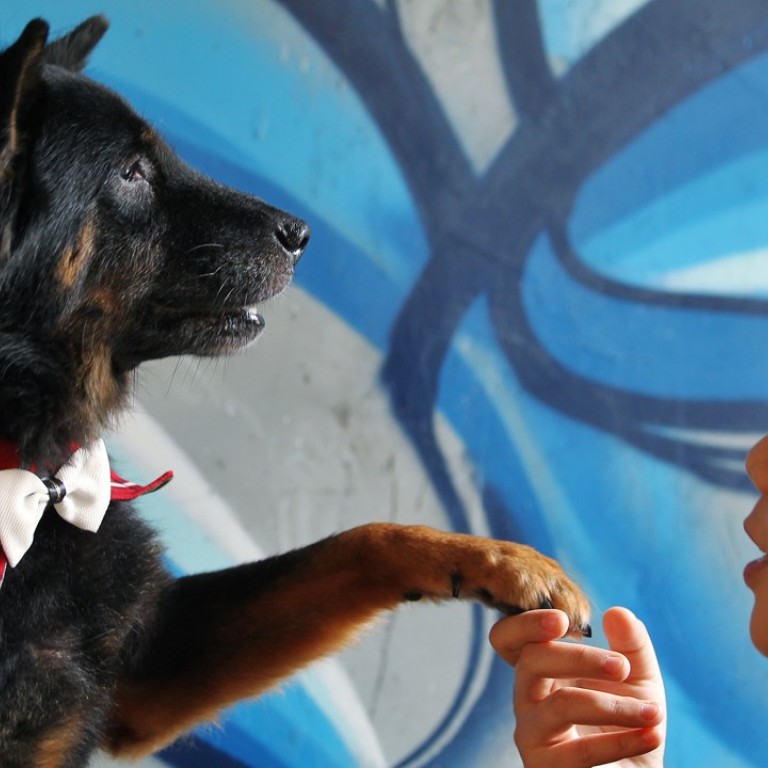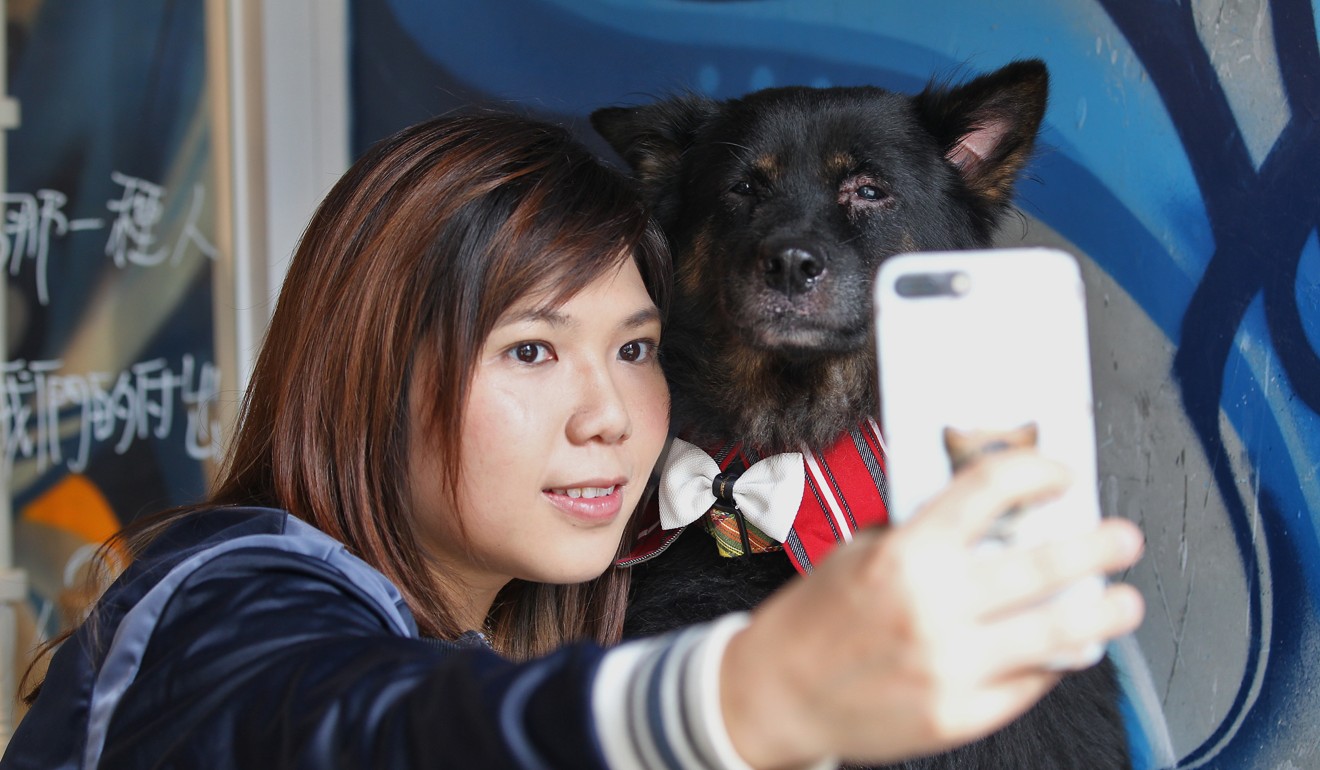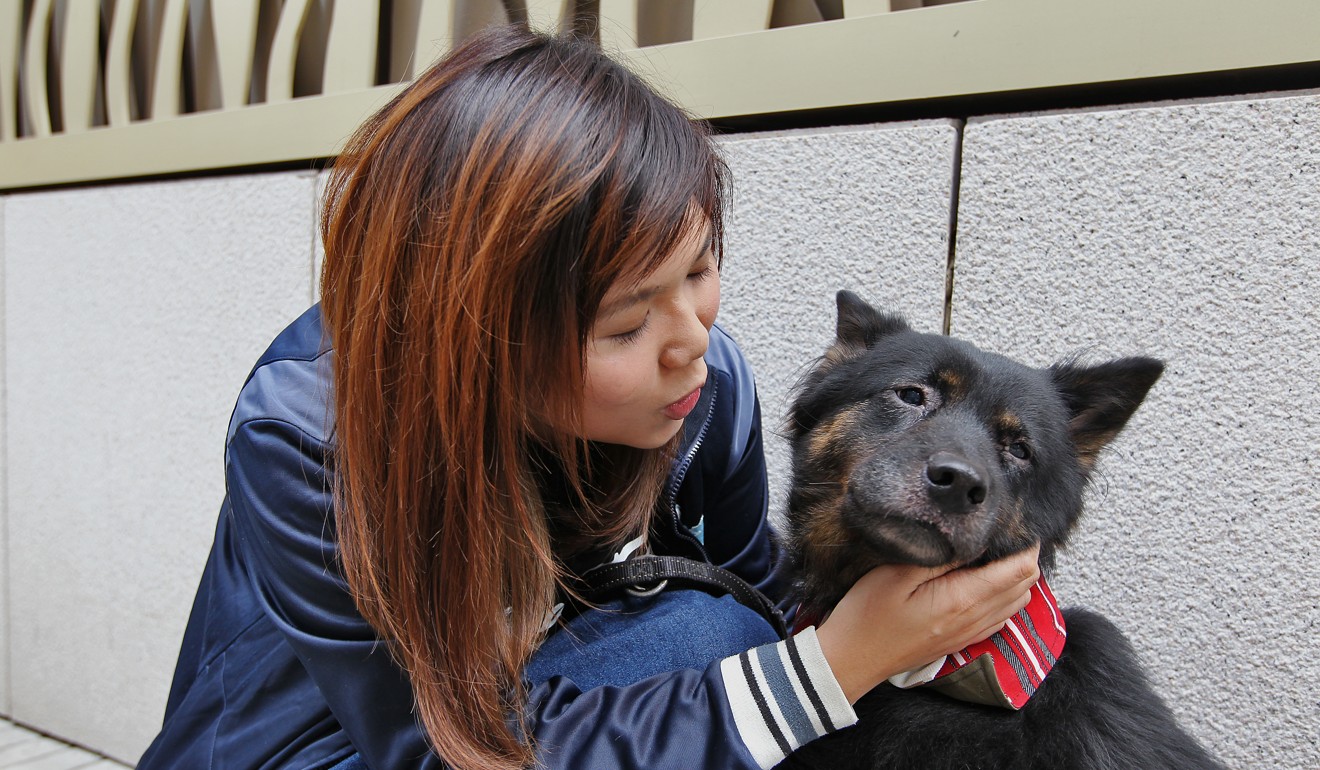
‘I can communicate with dogs, cats and cockroaches’: Hong Kong pet whisperers’ confessions
Self-styled psychics cashing in on a growing local market despite scepticism
Li Hiu-kwan claims she can talk to almost any type of animal, including cockroaches.
The self-proclaimed psychic says she can tell what pets are feeling just by looking at their photos – and that is how she makes a living.
Pet owners seeking to know whether their animals are happy usually have to provide basic information such as their pets’ age and gender, in addition to a photo.
“It’s about telepathy,” Li, 33, explains. “We first have to have a clear state of mind. When we look at the pictures, we put ourselves into the animal world, which is loaded with information about them just like the internet in the world of human beings.

“Looking at the photos is like calling someone’s number.”
Li also claims in one instance she was able to “influence the mind of cockroaches”.
“I saw lots of cockroaches crawling towards me,” she recalls of the moment on a minibus ride. “So, I told them they would die if they kept running towards me, and their only way out was to turn around. They eventually ran away.”
It’s pretty much like going to a fortune-teller. If you believe them, then they are real
Yeshma Sawlani, who has three years of animal communication experience, says there is a term for what Li describes.
“This is called distance psychic reading. Communicators can reach the animals’ frequency,” he explains. “A photo of the pet is helpful. It speeds up the communication.”
Pet psychics in Hong Kong, where the number of people keeping dogs and cats is on the rise, can earn tens of thousands of dollars a year. And, according to Li and Sawlani, more and more pet psychics are taking a slice of the market.
Li charges pet owners HK$300 for a 15-minute phone or web conference. The marketing graduate turned pet psychic, whose Facebook page has gained about 3,000 “likes” and 3,000 followers to date, gets two to five cases daily.
Sawlani, who describes himself as a “newcomer” to the field, is paid HK$1,500 for talking to pets for an hour. He averages five cases per month.
Lacking scientific support
Clinical psychologist Eliza Cheung Yee-lai, who chairs the Hong Kong Clinical Psychologists Association, expresses doubts as to whether humans can talk to animals without direct contact.
Citing a prominent experiment by US animal psychologist Irene Pepperberg, Cheung says there is no scientific proof that humans can talk to animals without meeting them, although several studies in the field have shown limited communication based on verbal banter and visual cues such as hand signs and drawings.
Young Hong Kong pet protection group goes extra mile to match animals with the right homes
Cheung describes two types of animal communication in psychology: intraspecies and cross-species communication, with human dialogue with other animals falling in the latter category.
“But what makes these pet psychics different is that they are not interacting with animals through languages and signs,” Cheung says.
Pepperberg interacted with a male parrot named Alex between 1976 and 2007. Her dealings showed Alex to be as smart as a five-year-old child, she said, noting Alex had the ability to ask questions.
In the face of questions about animal communication, local veterinary surgeon David Hopkins tells pet owners: “You have to be careful as to what level you believe it to be true or not.”

Hopkins, who has been in the veterinary field for more than 12 years, believes pet psychics usually pick up cues from pet owners during conversations. They also speculate what animals are feeling based on their past working experiences, rather than only depending on the photos.
“People are using intuition to work out what animals are thinking … It’s a little bit like astrology,” Hopkins said. “From a scientific viewpoint, it’s not usable.”
But Li counters that people should not view everything through the prism of science, while Sawlani says he has no comment.
What do pet owners think?
Pet owner Janice Kau Wun-na, 27, is among the many in the city who is undeterred, spending hundreds of dollars to find out whether her cat is happy about her life.
Kau, a freelancer working in media, pays a pet psychic HK$300 for a 40-minute phone conference. That gets her between five and eight questions about her eight-month-old cat.
“Before I went to the communicator, I accidentally hurt my cat when I was clipping his nails,” Kau says. “And a few days later, I asked the communicator if my cat was healthy. Then, the communicator said I’d hurt his nails. The communicator could also tell what kind of food my cat’s eating as well as the living environment.”
Why there is a rift between Hong Kong vets and pet owners
Kau vows to be a regular customer. “It’s pretty much like going to a fortune-teller. If you believe them, then they are real,” she adds.
As with Kau, Ng Tung-tat, 27, vouches for his animal communicator. Ng says the pet whisperer was able to point out that his two-year-old cat vomited after eating fish-flavoured snacks – even before the pet owner revealed the story.
“As a person who has seen ghosts before, I believe there are things that science cannot explain,” the legislative assistant says.
The role of loneliness
Puzzled by the acceptance of the controversial practice, psychologists point to urban loneliness.
A low fertility rate in Hong Kong and surging pet ownership means more people are relying on their furry friends for companionship. But not all who work in the field have the skills to observe and understand animal behaviour.
In the void, these psychologists say, a rising demand is being voiced by pet owners seeking to understand and communicate with their animals.
Watch: Hong Kong’s animal communicator
Cheung, the psychologist and owner of a nine-year-old toy poodle, notes that animals are often anthropomorphised by their owners, given that forging social bonds is human nature.
A 2015 census report showed the city’s fertility had declined over the past 33 years, while pet ownership had surged over the same period.
In 2014, only 62,305 babies were born in Hong Kong, while the number of dogs and cats kept as pets increased by 40 per cent from 297,100 to 415,100 between 2005 and 2010, according to government data.
Cheung offers her own simple observation amid owners’ quest for a connection.
“If you spend some quality time with your pets, you might already be able to understand their feelings.”
Six questions about “Little Ding”
To find out first-hand about animal communication services, the Post got in touch with a self-proclaimed pet psychic. The Post asked six questions on behalf of the owner of a 12-year-old Yorkshire terrier called “Little Ding”. The psychic charged HK$450 for the handwritten answers sent via WhatsApp. Here is the full transcript translated from Cantonese:
How does Little Ding want to be better taken care of?
“I’m increasingly prone to bumping into things all the time ... I’m so clumsy and becoming clumsier and dumber. Could you let me not bump into things any more?”
What are his worries?
“I only worry about food. I used to eat stuff that was either too hard or too soft ... My body is really not feeling very good. My feet hurt, and my belly aches.”
There are so many happy memories. The first time you cut my hair ... The first time I was wrapped like a present
What are his happiest memories with his owner?
“There are so many happy memories. The first time you cut my hair ... The first time I was wrapped like a present ... But my favourite is playing with you at the playground slide.”
What are his biggest fears?
“I’m most scared of screaming. Also, I’m scared of small insects sometimes!”
What are his unfulfilled wishes?
“I want to go for a ride again and feel the breeze with you, and have you tell me stories as we drive!”
What would he like to say to his owner?
“Winter is coming soon ... Remember to wear a hat. The strong wind will make you get a headache. It takes you a while to recover when you get headaches. Remember to drink hot drinks! I like seeing your glasses fog up, and I like your smile!”
Upon receiving the responses, Little Ding’s owner felt doubtful about their accuracy, although she conceded the parts about her pet being clumsy and always thinking about food “sounded about right”.
“My dog is indifferent to insects flying around him and does not react to shouting as he has poor hearing,” she says. “As for the parts about clumsiness, they are just general comments about old dogs, and it’s common knowledge that all dogs like to eat. I am not impressed.”
‘No government would recognise spiritual courses’
The Hong Kong government does not recognise the qualifications of pet psychics, but this did not stop Toby So Wai-sze from paying thousands of dollars to train and become one.
The 33-year-old dog lover said she spent two years and about HK$7,000 in total studying for an animal communication course comprising three levels.
She said she was certified by her teacher Li Hiu-kwan, who had been a pet psychic for more than a decade. So is aware that her credentials are not recognised by the government. “I’m not surprised because no government would verify spiritual courses.”
About five years ago, So moved to Taiwan to join her husband. Her business is carried out by phone and she charges pet owners NT$399 (HK$104) for a 15-minute chat about their animals. Clients must send her a picture of their pet.
Customers hail from Taiwan, Hong Kong and Malaysia. In a good month, So said she could have about 60 people seeking her services.

